Meet Our Trainers
BabyDog & TomeyK9 Services is a team of trainers who specialize in obedience, socialization and behaviour training using positive reinforcement and rewards-based training for dogs of ALL ages.
BabyDog and TomeyK9 Services merged in 2018 and are now running all their programs together as one big happy family.
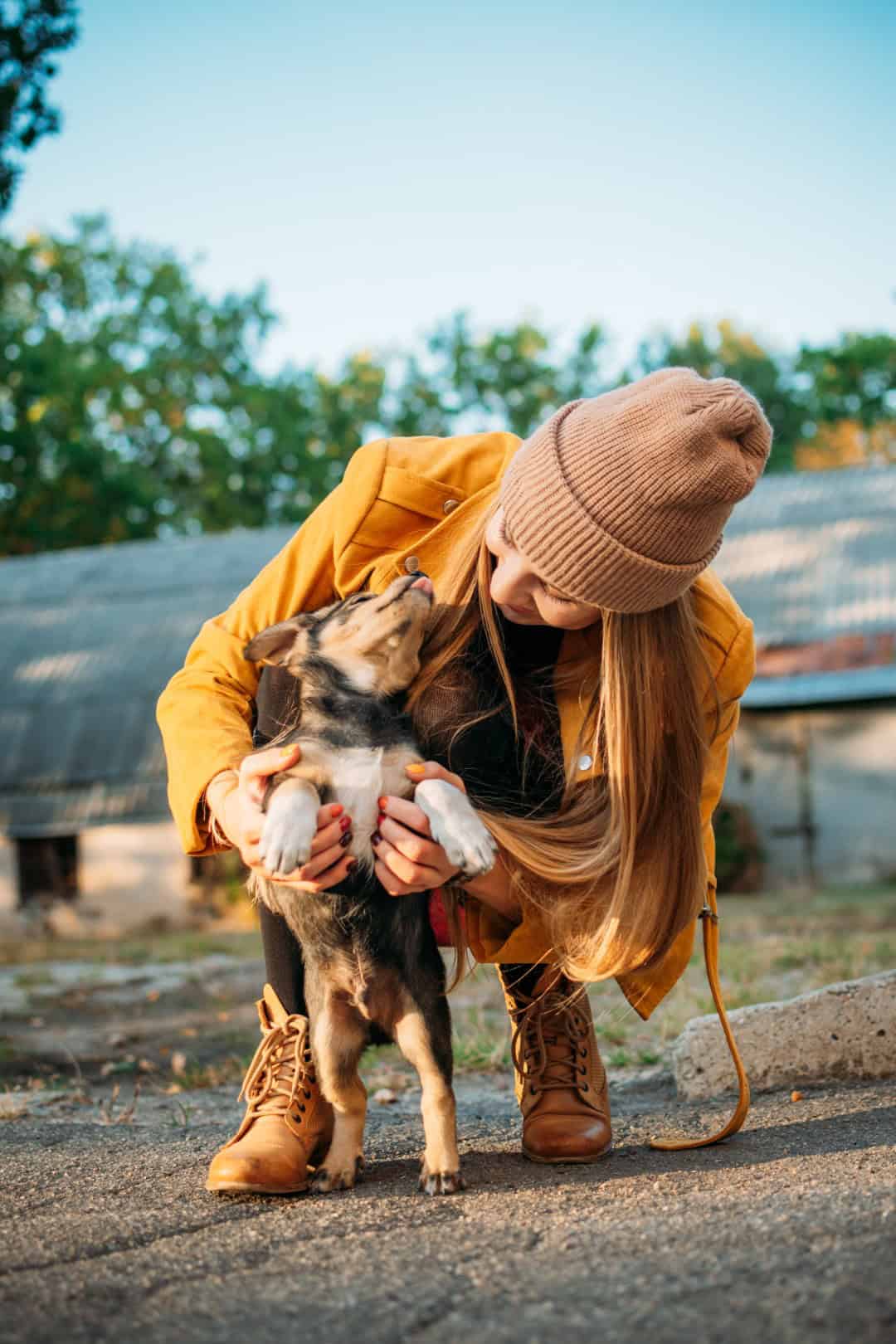
Dave Tomey
Dave was inspired to get into the dog training industry by his dog, Ellie-May, whom he had to retrain after a serious leg injury. In the process, he adapted traditional techniques to personalize his training around Ellie’s injury while pursuing his certification.
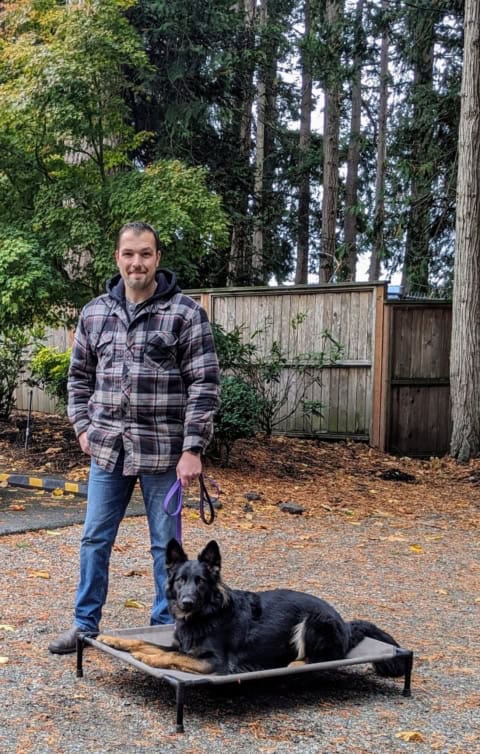
Read More
Dave is a passionate, and extremely hard-working trainer and co-owner of BabyDog and TomeyK9. Dave offers expertise in training, behavioural modification and rehabilitation. Dave has two blue nose pit bulls (Ellie-May & Jax) which makes spreading awareness of how fun, loving and loyal pit bulls are, really close to his heart.
Dave is a Certified Master Dog Trainer. He completed his training at Canada West Canine Center in Salmon Arm, BC. He is certified in all facets of basic and advanced obedience, socialization, utility training, protection training, tracking, scent work and temperament testing.
His training services are personalized to your individual needs and is committed to being flexible to your schedule, helping you reach your goals and providing exemplary service before, during and after your training.
Aviva Shtull
Aviva’s empathy for dogs and humans together is what set her apart as a trainer. Her depth of knowledge is based on a need to know “why” for everything canine.
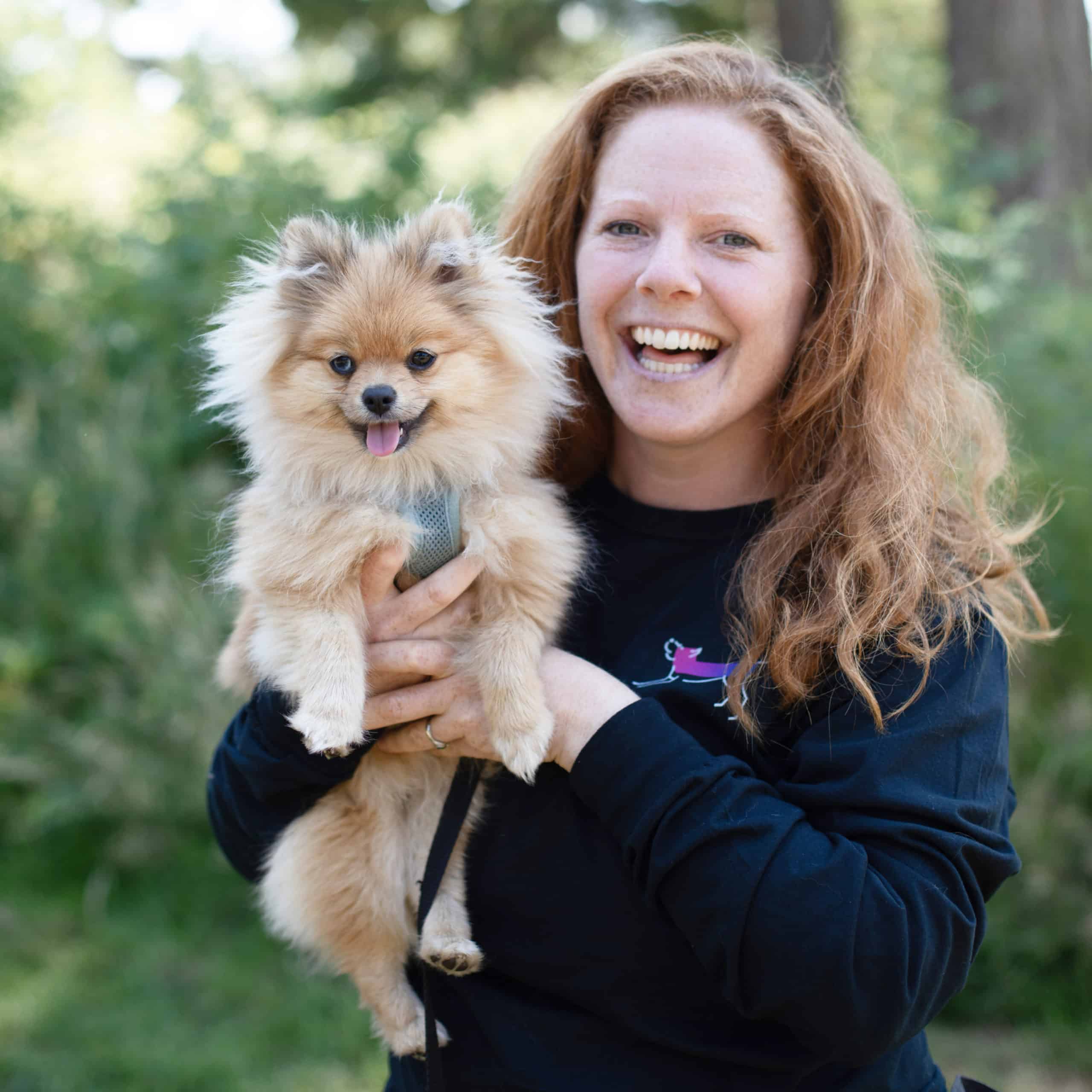
Read More
Aviva Shtull has dedicated the past two decades to understanding and improving the lives of dogs and their humans. A true expert in canine behaviour and training, she has worked with thousands of dogs — from wild puppies and unruly adolescents to anxious, reactive, and aggressive dogs. Aviva’s deep knowledge of canine body language and her mastery of dog psychology allow her to uncover the “why” behind behaviour, helping dogs feel understood and humans feel empowered. Guided by empathy and respect, Aviva bridges the communication gap between species, fostering trust, harmony, and lasting change in every relationship she helps build.
Aviva lives on Quadra Island and offers private training as well as group programs on Quadra, in Campbell River and all surrounding communities. She can help with obedience training, socialization, and behaviour modification.
Emma Cilliers
Emma’s goal as a dog trainer is to help dogs and their owners enjoy their lives together. Her experience with hundreds of dogs of all ages, breeds and types allows her to help you navigate any issues you may encounter with your dog.
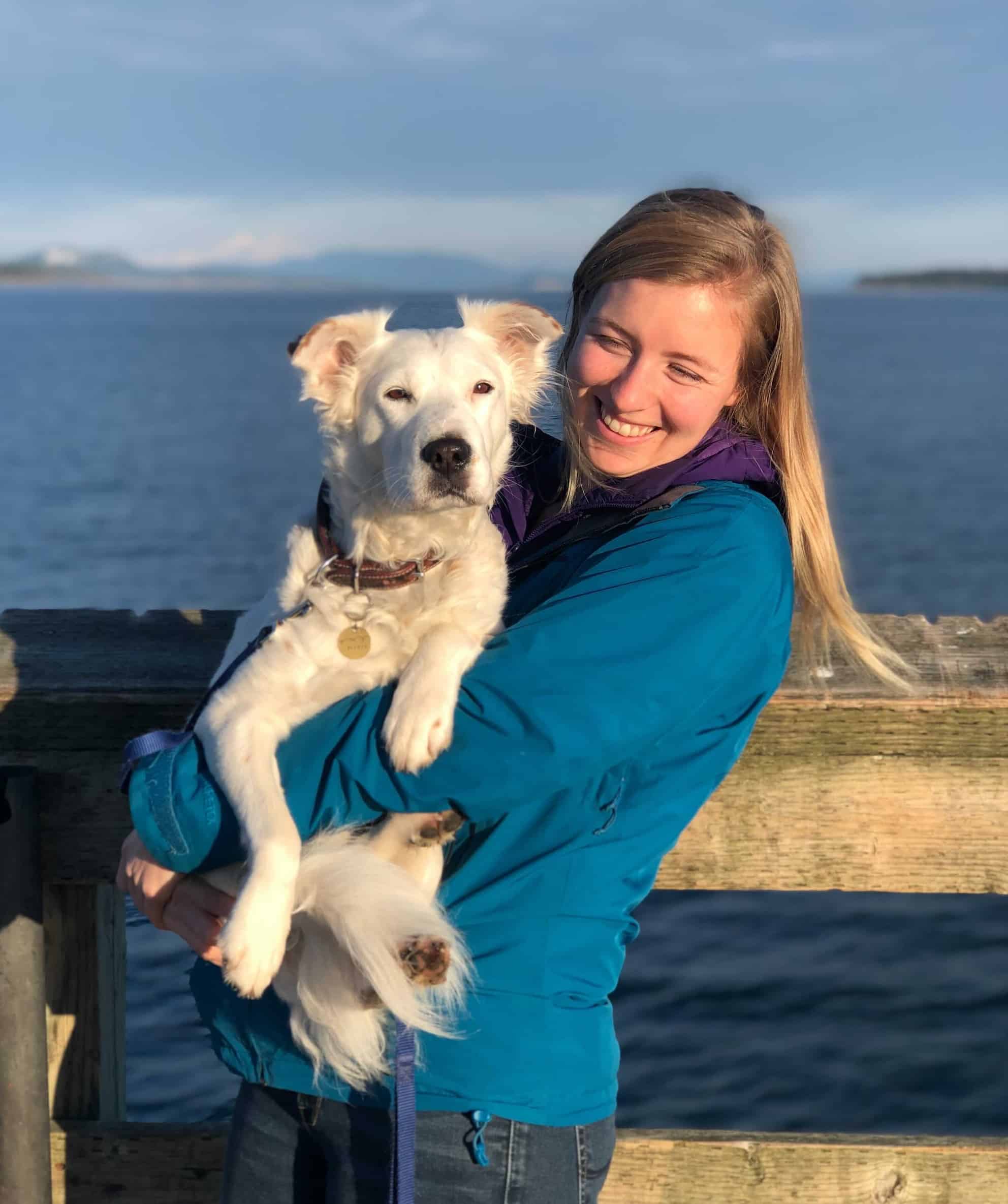
Read More
Emma has been involved with animals for as long as she can remember. She has worked in the pet industry for 10 years, as a dog daycare attendant and as a veterinary technician. Emma is a graduate from the International Academy of Canine Trainers, a training school registered with the BC Ministry of Advanced Education. The curriculum is based on requirements outlined by the Association of Pet Dog Trainers (http://APDT.com) and she believes in training based on today’s standards of positive reinforcement training and scientific learning theory.
Emma is also a certified teacher with the BC ministry of education and is fascinated by learning theory for both humans and animals. As a teacher, she understands the importance of patience, positivity, support and clarity when dealing with students, human or canine. Emma has never met a dog she doesn’t like and is dedicated to helping dogs and people establish clear and enjoyable communication skills. She is so excited to be a part of the Babydog/TomeyK9 team.
Emma is enjoying exploring the dog sport world and is focused on competing with her dog Ferdinand in agility, and rally obedience.
Karin Waugh
Karin, born and raised in Victoria, has always been destined to live a life surrounded by dogs. At age 14, she worked and saved her own money to purchase her first Bernese Mountain Dog. From there, the passion for all things “dog” had begun.
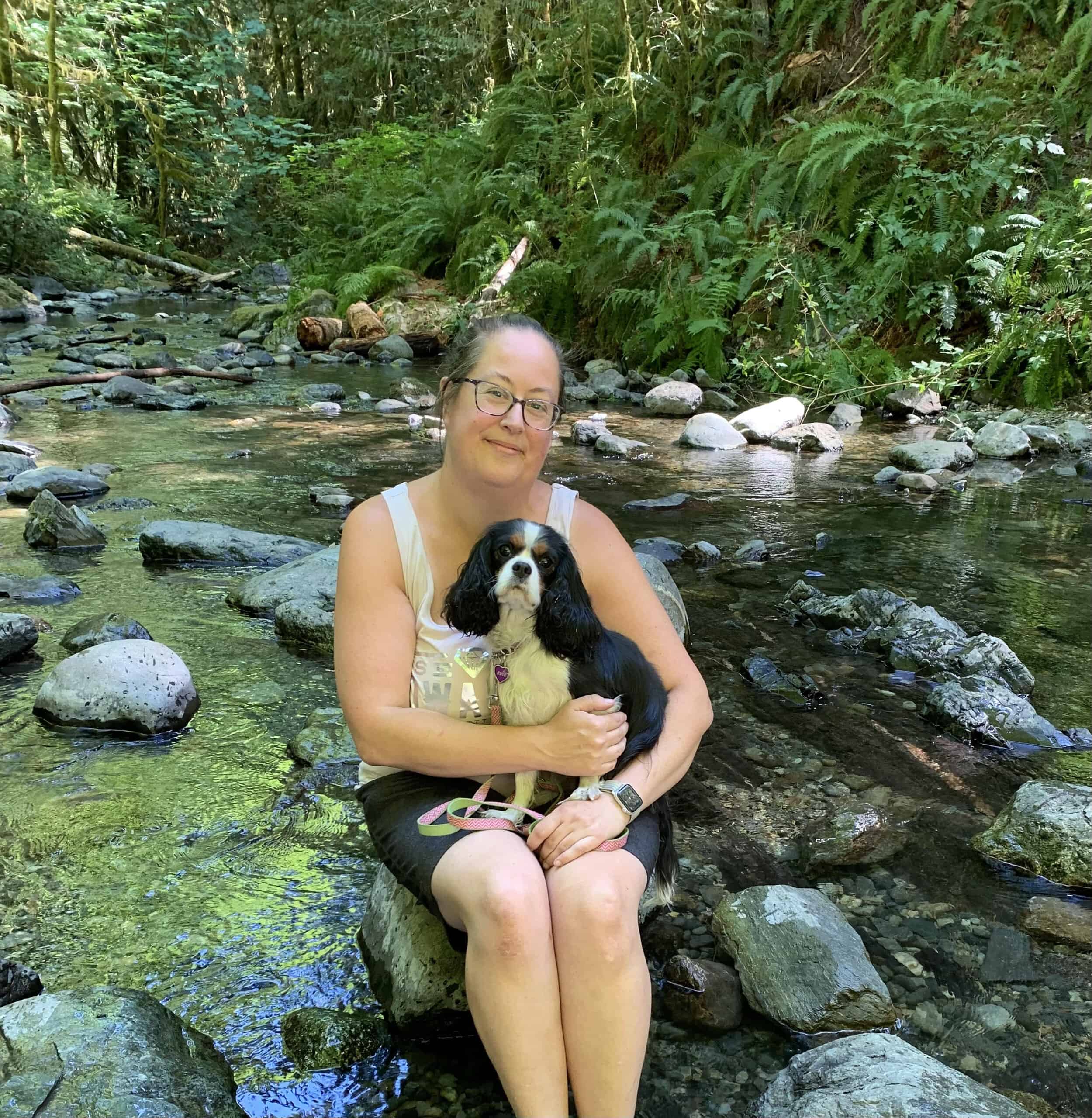
Read More
With her own personal dogs, she enjoys doing competitive dog sports such as Obedience, Rally, and Conformation as well as the Canine Good Neighbour test, and most recently earning her first Novice Trick Dog title. She loves to help clients really engage with their dogs and experience that joy that comes with truly having FUN with your dog!
Karin is a wife and mother to a daughter who loves dogs, just like her mom! She currently has a spunky young Cavalier King Charles Spaniel. She is a huge advocate for responsible, ethical breeding practices.
With over 15 years of experience training thousands of dogs (and their humans!) in group obedience and private training, she has helped countless dog owners have a successful life with their dogs. On the side, she also operates a successful small business doing dog walking and dog boarding.
Karin facilitates our socialization and obedience classes in the Westshore and Sooke.
Tara Savrtka
Tara has personal experience with reactive and high-energy dogs and has 3 of her own dogs at home. She aims to help ensure owners help their dogs to begin their journey with a positive and science-based approach to help ensure a healthy and happy co-existence for life.
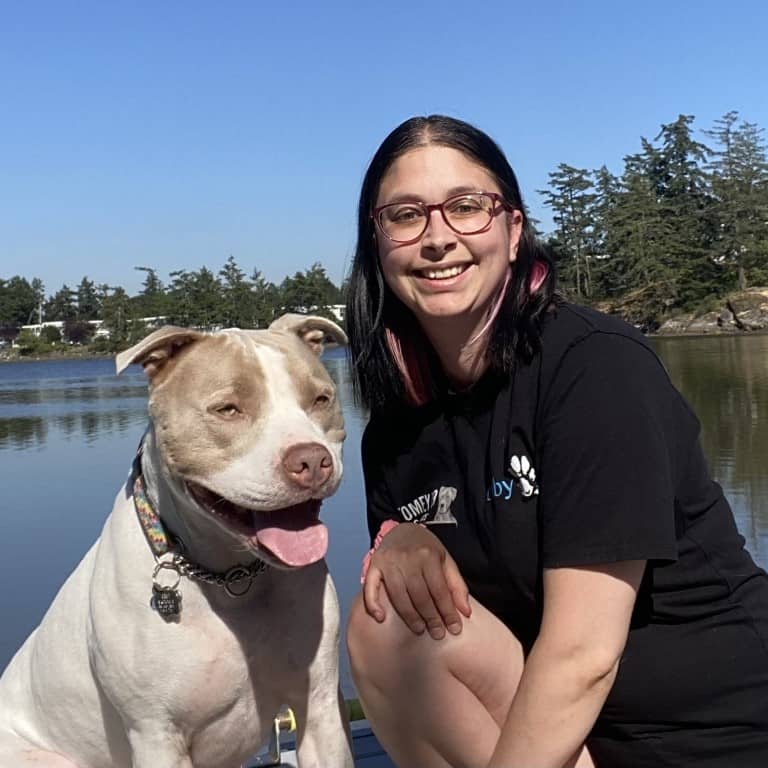
Read More
Tara has been a volunteer with Babydog for over 5 years and is very excited tobegin her journey as a Trainer with the company. Acting as our volunteer coordinator, Tara has been involved heavily with the socialization programs for many years. Tara has personal experience with reactive dogs and, high energy, having 3 dogs at home. She aims to help ensure owners help their dogs to begin their journey with a positive and science-based approach to help ensure a healthy and happy co-existence for life.
Tara began her journey with Babydog in 2018, when she brought her heeler Storm, through the program. Immediately connecting to the concepts and practices with the program, she began to volunteer shortly after beginning classes. She has volunteered her time in various areas including obedience and pack walks, in addition to, socialization. In 2019, she took on the role of volunteer coordinator for the puppy socialization classes and manages our team of about 20 volunteers.
After considering a career in dog training for many years, she completed her certification through ISCDT. Having a reactive dog, Tara has spent endless hours and time learning as much as she could to ensure her dog Gambit has the best quality of life but also isn’t a risk to others. Dog obedience and behavior has been a huge part of Gambit rehabilitation. Through consistency and daily practice, she was able to introduce a puppy to her pack and have Gambit immediately accept him.
Tara empathizes with all dog owners going through their own dog behavior modification journey and wants to ensure the needs of you and your dog are heard and addressed.
In addition to joining the Babydog/ Tomey K9 team, Tara is the co-owner and director of a long-standing shoe business in the downtown Victoria core. Tara is excited to challenge herself and help others through their dog ownership journey.
Meg Sorley
Meg’s experience fostering rescue pups and getting them adoption ready using positive based training solidified her interest in certification. Her training technique is rooted in compassion, respect and science-based theories.
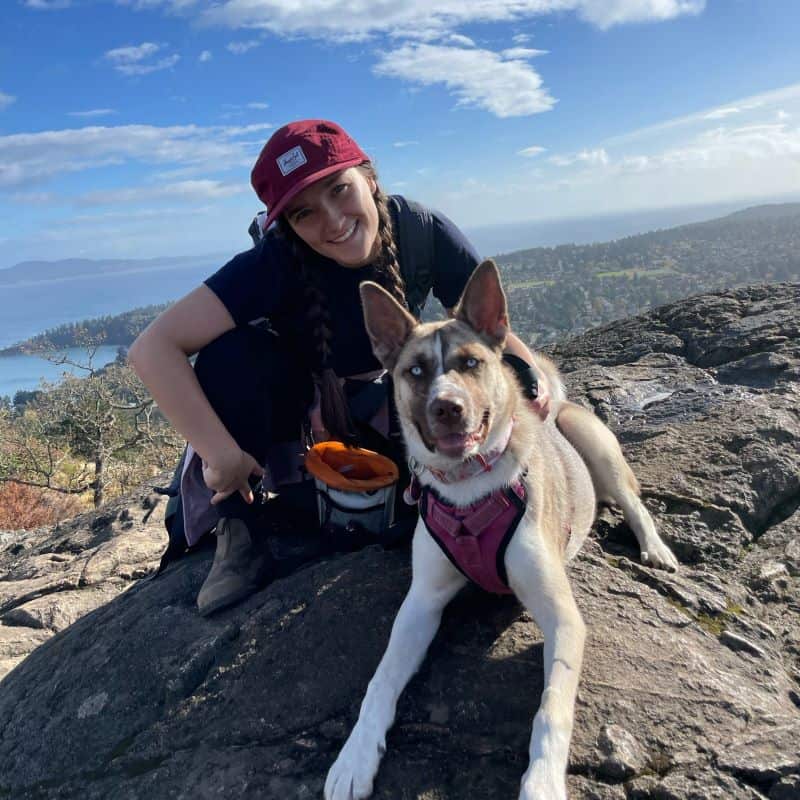
Read More
I have been drawn to dogs my whole life. As an empathetic person, I found comfort in our canine companions. I was that geeky kid who presented dog information to family members and ate dog treats because if dogs liked them then they MUST be good.
Fast forward a few years and a couple dog biscuits later, at the age of 12 I saved up all my money to purchase my first dog. She grew up alongside me until I was 26. Losing her drove me to explore my passion in the canine world. I struggled like most people do and was having trouble finding ways to turn my grief into something that memorialized her. I did some research and decided to foster dogs. I used this as an opportunity to use positive reinforcement techniques as a way to give these pups the skills they needed to be successful in their forever homes. I often ended up teaching their new parents various training skills – I fell in love with this process and wanted to do more.
Until volunteering with BabyDog and Tomey K9, I struggled to find ways that I could combine my love for collaborative learning and my passion for animal welfare. Volunteering only solidified my passion for strengthening human-dog relationships.
Being a part of the BabyDog and Tomey K9 team has allowed me to devote my skills to improving my clients’ relationships with their own dogs. My training technique is rooted in compassion, respect and science-based theories. I work with my clients to reach achievable goals that will make you feel confident in your ability to navigate the world with your pup. I have completed my Masters of Sustainability in Human-Wildlife Management, specifically focusing on compassionate conservation, and attained a training certification from the Karen Pryor Academy before my hands on training with the BabyDog team. Currently I have one dog. Sweets came into my care in September of 2022. She was true to her husky breed – loving, social and a little wild. After months of training together, adventures, snuggles, and failed adoption attempts, it was clear that Sweets was meant to stay exactly where she was. She’s challenged me to be a more consistent, compassionate and reflective trainer, and I’m forever thankful for that.
Denise Lawrance
Denise has over twenty years of experience working with dogs and a lifelong passion for their care and training.
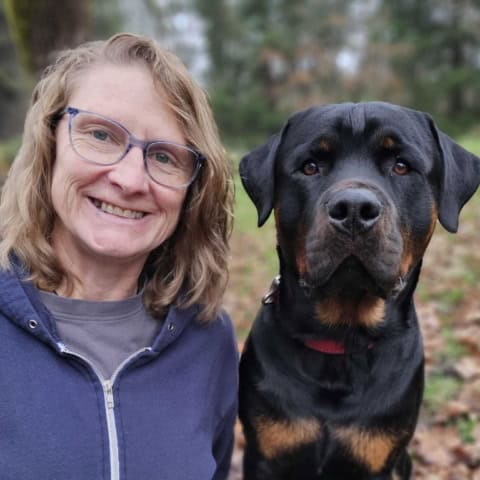
Read More
Her journey began more than two decades ago, but it was through fostering numerous puppy litters that her true dedication to canine development took shape. After starting her career with traditional training methods, she quickly recognized their limitations and embraced positive reinforcement as a more compassionate and effective approach. She firmly believes that setting puppies up for success from the start leads to confident and joyful adult dogs. Today, she brings her deep experience and thoughtful approach to every dog and family she works with, helping to build trust, understanding, and lasting harmony.
Adam White
Adam brings a calm, compassionate presence to every dog he works with. Rooted in empathy and science, Adam’s training philosophy focuses on relationships, clear communication, and supporting both dogs and their people.
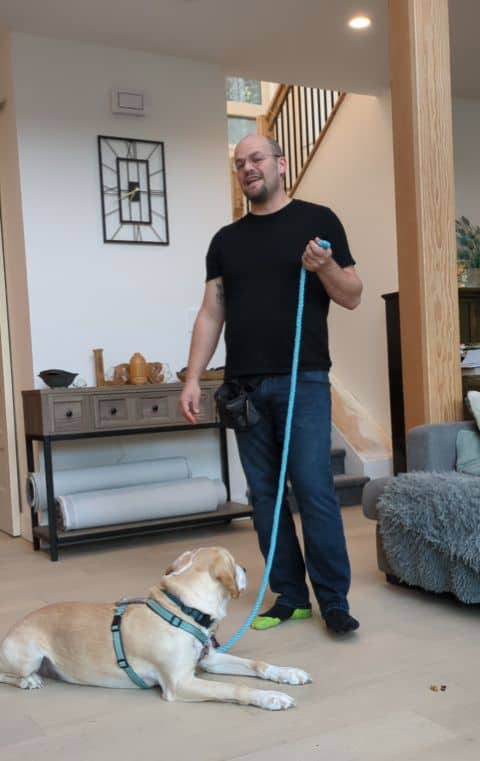
Read More
Certified in evidence-based, force-free positive reinforcement training and a graduate of Good Dog Academy, he blends solid education with extensive hands-on experience. His years of living with and rehabilitating multiple rescue animals have shaped his deep understanding of canine body language, motivation, trust-building, and the wide range of behavioural challenges dogs can face.
He has successfully applied positive reinforcement across different species, reinforcing how effective and adaptable this method is. Adam isn’t just a qualified trainer—he’s a thoughtful, grounded human dedicated to helping dogs and their families thrive.